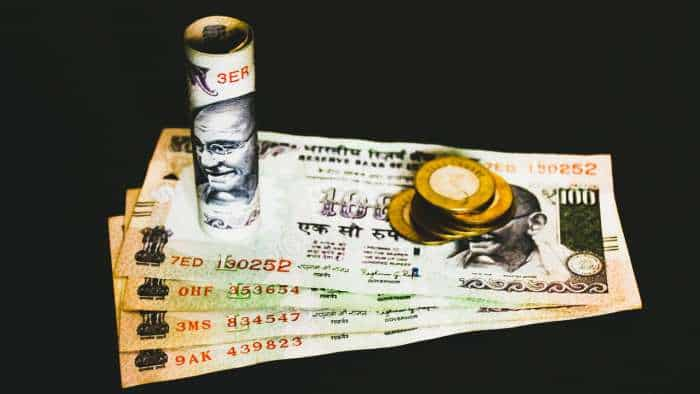Loan vs Savings: Which is a better option to buy a car?
A car loan offers one the opportunity to fulfil their wish to own a four-wheeler without impacting their bank balance significantly. Using one's savings to finance a four-wheeler purchase frees them from any debt obligation.
)
Buying a car requires a significant amount of investment. When it comes to purchasing a car, there are two options - opt for a loan or pay for the vehicle with savings, like a term deposit.
Both options are popular with consumers. The choice to opt for a car loan or spend one’s savings depends on a number of factors like the cost of the vehicle, interest rates on the loan, the buyer's desire to pay equated monthly instalments (EMIs) and more.
Take a look at the pros and cons offered by auto loans and buying a car with savings.
Advantages of buying a car using savings
The option gives the customer full ownership of the vehicle. There is no debt obligation or interest payment required as you may need to do in case of availing a car loan. The car owner has to pay considerable out-of-pocket expenses immediately and it does not impact their credit score. Paying extra EMIs towards a new car loan may require advance planning and may impact the customer’s monthly budget. If you are using your savings to buy a car there is no such burden of EMIs.
Disadvantages of buying a car using savings
A significant chunk of your deposits will be spent on owning a new vehicle. It can deplete your bank account or deposits and reduce the amount of money available to you for future investments. Moreover, to accumulate the money for the vehicle, one needs to manage their finances a lot and plan for years to generate the same amount in savings. Apart from this, as the car is a depreciating asset, the savings amount you spend on owning the vehicle could come as a huge expense and you won’t recover the amount in future.
Advantages of buying a car using auto loan
A car loan offers the opportunity to fulfil their wish to own a four-wheeler without impacting their bank balance significantly. It allows the customers to pursue other investment avenues like fixed deposits or mutual funds with their savings. It will enable a person to build their credit profile with timely EMI payments. You can own a vehicle by paying small amounts towards EMIs even without impacting your regular savings.
Disadvantages of buying a car using loan
Monthly EMI payments could be a hassle for many people. At the same time, the lender will retain ownership of the vehicle till the loan is paid off. It may not be an easy task to fulfil the eligibility criteria for certain customers to avail the car loan. An individual can go into debt if the EMI payments are not completed within the due deadline.
Savings or car loan- what to use for buying a car?
The choice depends on what the buyer wants. It can be easier to go in for a car loan. But, one also has to keep in mind the interest rate charged on the loan. Most banks charge over 8.6 per cent interest on such loans. The opportunity cost of other investments has to be kept in mind as well. If you want to set aside money for other transactions or endeavours, a car loan is the option to choose. If you want to keep complete ownership of the four-wheeler without any financial liability, then using your savings is a good idea.
Get Latest Business News, Stock Market Updates and Videos; Check your tax outgo through Income Tax Calculator and save money through our Personal Finance coverage. Check Business Breaking News Live on Zee Business Twitter and Facebook. Subscribe on YouTube.
RECOMMENDED STORIES

Small SIP, Big Impact: Rs 11,111 monthly investment for 15 years, Rs 22,222 for 10 years or Rs 33,333 for 7 years, which do you think works best?

Power of Compounding: At 12% expected annualised return, how soon can Rs 8,000, Rs 9,000, Rs 10,000 monthly SIPs build Rs 5 crore corpus?

Power of Compounding: How can you create Rs 5 crore, 6 crore, 7 crore corpuses if your monthly salary is Rs 20,000?

Top 7 Large and Mid Cap Mutual Funds With Highest SIP Returns in 1 Year: Rs 27,27,2 monthly SIP investment in No. 1 fund has zoomed to Rs 4,05,296

PPF vs SIP: With Rs 12,000 monthly investment for 30 years; which can create highest retirement corpus

Highest Senior Citizen FD Rates: Here's what banks like SBI, PNB, BoB, Canara Bank, HDFC Bank and ICICI Bank are providing on 1-year, 3-year, 5-year fixed deposits
02:14 PM IST









 Hidden charges on SBI ATM cards: Is your money disappearing quietly?
Hidden charges on SBI ATM cards: Is your money disappearing quietly? Latest personal loan interest rates for SBI, PNB, Bank of Baroda, HDFC bank and ICICI bank
Latest personal loan interest rates for SBI, PNB, Bank of Baroda, HDFC bank and ICICI bank 8 post office investment schemes that offer over 7% guaranteed return
8 post office investment schemes that offer over 7% guaranteed return Millennials turning towards new-age investment instrument fractional investing: Report
Millennials turning towards new-age investment instrument fractional investing: Report  Income Tax: How are e-filing and e-payment of taxes different? Know details here
Income Tax: How are e-filing and e-payment of taxes different? Know details here